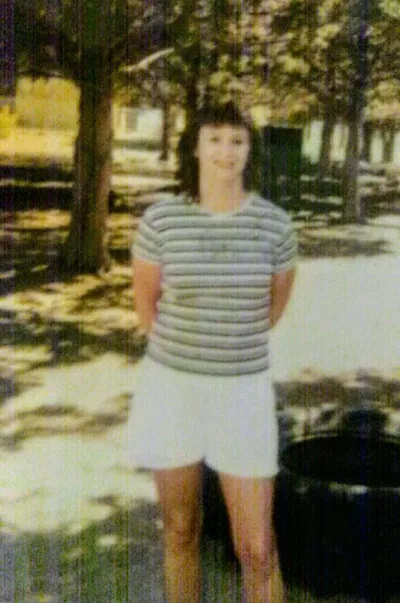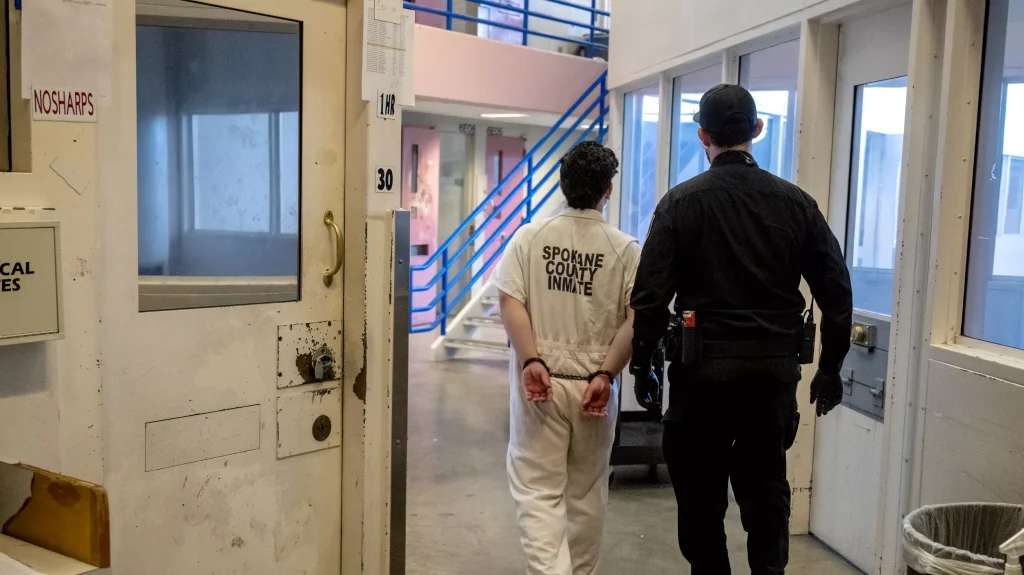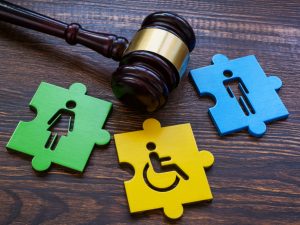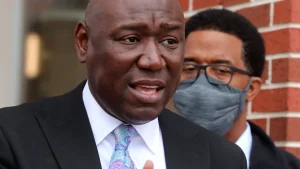"I’m Sick, I’m Sick": She Died in Jail. Now the Company That Failed Her Faces Accountability
After a woman died in jail screaming in pain, a jury found her medical care provider responsible. A federal court just agreed.
On a Saturday morning in August 2018, a nurse found Cindy Lou Hill curled up on the floor of her Spokane County Jail cell. She wasn’t speaking in sentences—just repeating one phrase: “I’m sick, I’m sick.”
She was holding her stomach. She couldn’t get up. She was in pain and visibly afraid. Her cellmate told the nurse Hill had been dealing with severe abdominal pain. She’d spent the night crying out, unable to lie flat.

Cindy Lou Hill, pictured here in a family photo, was 55 when she died at Spokane County Jail in August 2018. A U.S. District Court jury has awarded her estate $27 million in damages. (Photo courtesy of the Hill family)
The nurse stayed with her for about five minutes. She had Hill moved in a wheelchair to a part of the jail called “medical watch”—not a hospital. Not even a medical bay with professionals on duty. Just a special cell with a window where untrained jail guards were tasked with watching her through the door.
That afternoon, the nurse came back. She stood outside Hill’s new cell for less than two minutes, wrote in the log that Hill wasn’t in visible distress, and walked away.
By 5:25 p.m., it was over. A corrections officer found Hill unconscious. CPR was started, but it was too late. She was taken to the hospital and pronounced dead.
What Killed Cindy Lou Hill?
An autopsy found that Hill died from acute bacterial peritonitis—a serious, extremely painful infection caused by a rupture in her digestive system. It had gone untreated.
And now, after years of legal wrangling, a federal court has confirmed what a jury already found: the company responsible for Hill’s medical care while she was in jail, NaphCare, failed her. And that failure wasn’t just medical—it was constitutional.
The Verdict: Not Just One Nurse, But a System
A jury had already determined that Hill was deprived of her right to adequate medical care. They said this wasn’t just about one nurse’s poor decision. It was about a policy—a pattern—of cutting corners when it came to care.
NaphCare’s approach to monitoring sick inmates relied heavily on “medical watch.” But that setup didn’t include nurses or doctors checking in. Instead, jail guards with no medical training were tasked with watching inmates through a cell window every 30 minutes. They weren’t told to speak to the inmates. They weren’t trained to check symptoms or detect distress. They were just expected to log whether the person was alive.
In Hill’s case, that wasn’t enough. And according to expert witnesses in court, it was never going to be.
One medical expert testified that it was common for NaphCare to hand over care of acutely ill inmates to correctional staff. Another described the approach as a “regular practice.” Even NaphCare’s own witness acknowledged that this “medical watch” was routinely used for patients needing acute monitoring—despite the fact that trained medical professionals weren’t the ones doing the watching.
One jail officer even described something called the “shake and wake” procedure for people experiencing alcohol withdrawal, a condition that can also be fatal if ignored. That procedure, like the others, relied on corrections staff—not healthcare workers—to detect signs of a medical emergency.
NaphCare Tried to Undo the Verdict. The Court Said No.
NaphCare challenged the jury’s decision, saying the evidence wasn’t strong enough to support the verdict. They claimed the jury had to “speculate” to hold them liable under civil rights law.
But the Ninth Circuit Court of Appeals disagreed. The judges said there was more than enough evidence to support what the jury found: that NaphCare had a custom or policy of turning seriously ill people over to guards, instead of giving them real medical care.
In short, the court said Hill’s death wasn’t just a tragedy—it was the predictable result of a broken system.
Beyond the Verdict
This ruling doesn't just speak to one woman’s death—it sends a message to the entire for-profit jail healthcare industry. If you take on the job of caring for people in custody, you can’t rely on window checks and paper logs. You can’t train your staff to cut corners and then hide behind procedures when someone dies.
It’s not enough to say someone looked alive at 3 p.m. if they’re dead by 5.
What Comes Next
The court didn’t overturn the entire verdict—but it did send part of it back. Specifically, it ruled that the punitive damages awarded to Hill’s estate were too high, and ordered the lower court to reduce them. But NaphCare’s liability? That stands.
They were found responsible for how Hill was treated. And now, they remain on the hook for what happened to her that August day.
In the end, this wasn’t about a nurse making a bad call. It was about a system—one that saw a woman in pain, placed her in a cell, and walked away.
And now, finally, someone’s being held accountable.
🔎 You Might Also Like:
⚖️ Tesla Faces Court Setback Over Defamation Case Technicality
Cristina Balan wins a legal challenge as the Ninth Circuit tosses Tesla’s arbitration victory on jurisdictional grounds.
Read more
🧑⚖️ Judge Paula Xinis and the Trump-Era Deportation Reversal
A Maryland man’s mistaken deportation and the federal judge who challenged it.
Read more
🔥 Man Charged in Fire at Pennsylvania Governor’s Mansion
A high-profile arson case unfolds at the heart of state government.
Read more
🌍 Exxon Faces Lawsuit Over Alleged Trespass and Refinery Pollution
Texas landowners take on ExxonMobil over claims of toxic contamination.
Read more
🚜 Ohio Moves to Ban Foreign Ownership of Farmland
New legislation targets national security and land use across the Buckeye State.
Read more





















